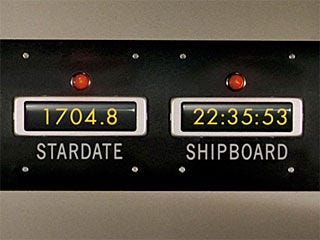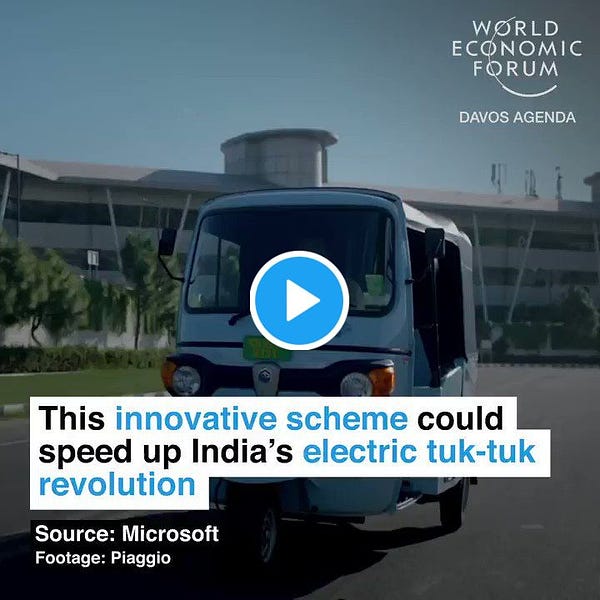Hey there,
Happy New Year!
Here’s your first helping of Makeshift Mobility for 2021, your fortnightly newsletter on innovations in informal transportation.
(I know this is the second email you got from me since New Year’s Day but that last one was all about me, so let’s not count it.)
…And, welcome to the 90 or so days where we all have to keep checking if we wrote 2020 or 2021 on letters and other documents.
How long does it take you to get it right?
I did notice that, while the autocomplete functions on google docs and gmail and other apps are more than happy to correct my spelling or grammar -even suggest phrases, they strangely don’t want to correct me when I’m writing the date.
Did you catch that?
I can see how the programmers could think that having that function could run into all sorts of problems. What if we screw up the date on a legal document? What if the person was trying to write an historical account or list dates in the past?
Maybe I’m just lazy and I want the algorithm to correct what has been a pain point every January since I first learned to write the date.
Still, I’m glad 2020 is done, and I’m hopeful for 2021. Maybe.
Someone on the internet asked, “Why doesn’t the system behind the captain’s log on Star Trek have an automatic date stamp? Why do Kirk, Picard, Janeway, Sisko, etc. have to say the star date? You’d think with all that technology…”
I’ll keep it short this week: just a teaser and then two videos.
Talk Deep
As part of their welcome, the Shared-Use Mobility Center is letting me host a conversation featuring four important voices and thought leaders who will share their insights on the deep, systemic changes that are happening and need to happen to push our transportation systems towards sustainability and equity.
I’m calling it “Transportation Inflection Reflection” (or at least, that’s what I want to call it, but I still have to convince Leslie.)
I’ve invited Adonia Lugo, Alissa Walker, Ashiwini Chabra, and Stefanie Brodie to join me in this conversation. They’ve graciously accepted.
While we’re all currently based in North America, we’ll definitely discuss deep systemic issues that also affect the Global South and informal transportation.
We still have to lock down the dates (and the title) but it’s definitely going to be in early or mid-February. You should subscribe to Share-Use Mobility Center’s Mobility Hub Newsletter to get the early info on dates and registration.
Swap Fast
Did you catch this short video from the WEF on battery swapping for electric auto rickshaws in India?
From the article:
In India, Bengaluru-based startup SUN Mobility has developed a swappable battery the size of a shoe box and a network of 50 battery swapping stations across 14 cities.
Drivers subscribe to a pay-as-you-go battery subscription service run on the Microsoft Cloud. When their current battery runs low, they stop at swapping station to replace it with a fresh one.
The idea is the brainchild of Chetan Maini, who launched India’s first electric car, the Reva, after founding Reva Electric Car Company in 1996.
“If people are willing to rent homes and cars, I figured they’d be open to renting the battery, too,” Maini told Microsoft in a feature on the company.
Do it again
Finally, here’s the full video from the panel Agile City Partners hosted in November at CoMotion LA. It’s about an hour.
Catch it if you missed it. Or you may just want to listen again to the insights from Deepa, Devin, Nadjeli, and Sonal.
You should also read Deepa’s recent piece on Medium on “How to challenge others (when you don’t feel like you can….)
That’s it for now. Catch you in two weeks.
As always, leave a comment. It makes me happy.
If you enjoy Makeshift Mobility in your inbox, share with the other transportation geeks in your life. It’s free!
I’m Benjie de la Peña and I’m the new CEO of the Shared-Use Mobility Center. It’s a new year and I have to get my new team on board with agile and scrum. I’m sharing pictures of my cats to get them to lower their guard.
I co-founded Agile City Partners, and I am the Chair of the Global Partnership for Informal Transportation.
I believe makeshift mobility could be the single greatest lever to decarbonize the urban transport sector. But only if we stop ignoring it and instead learn to celebrate it so we can transform it.







